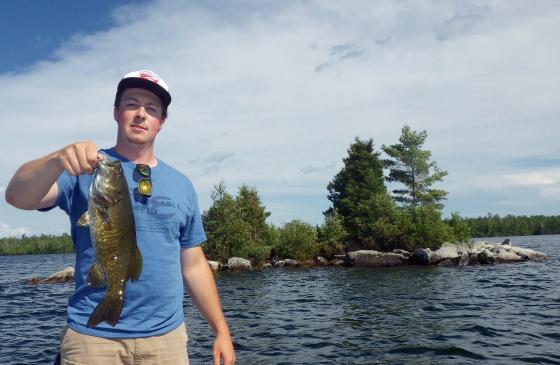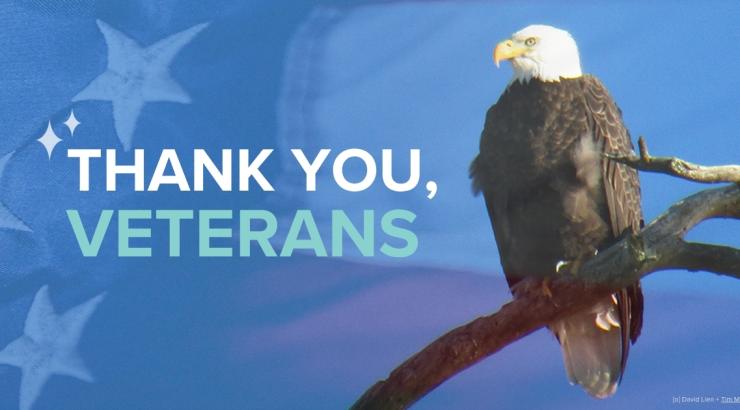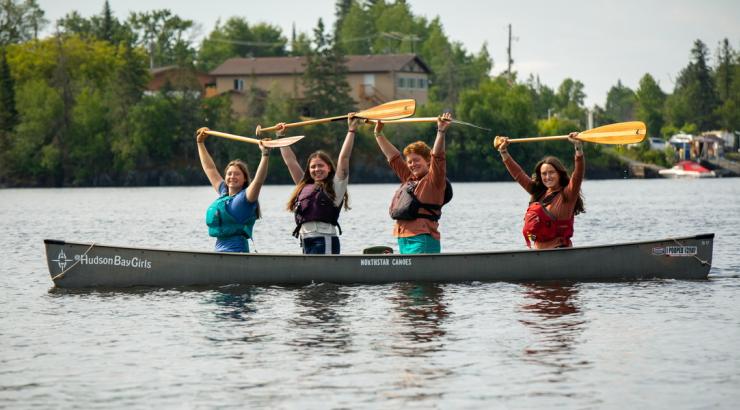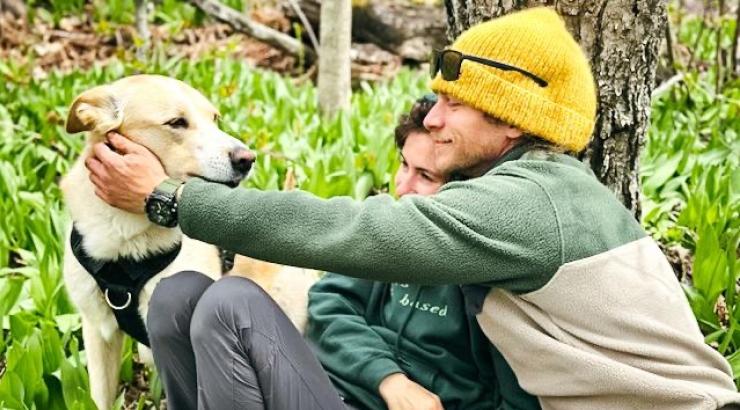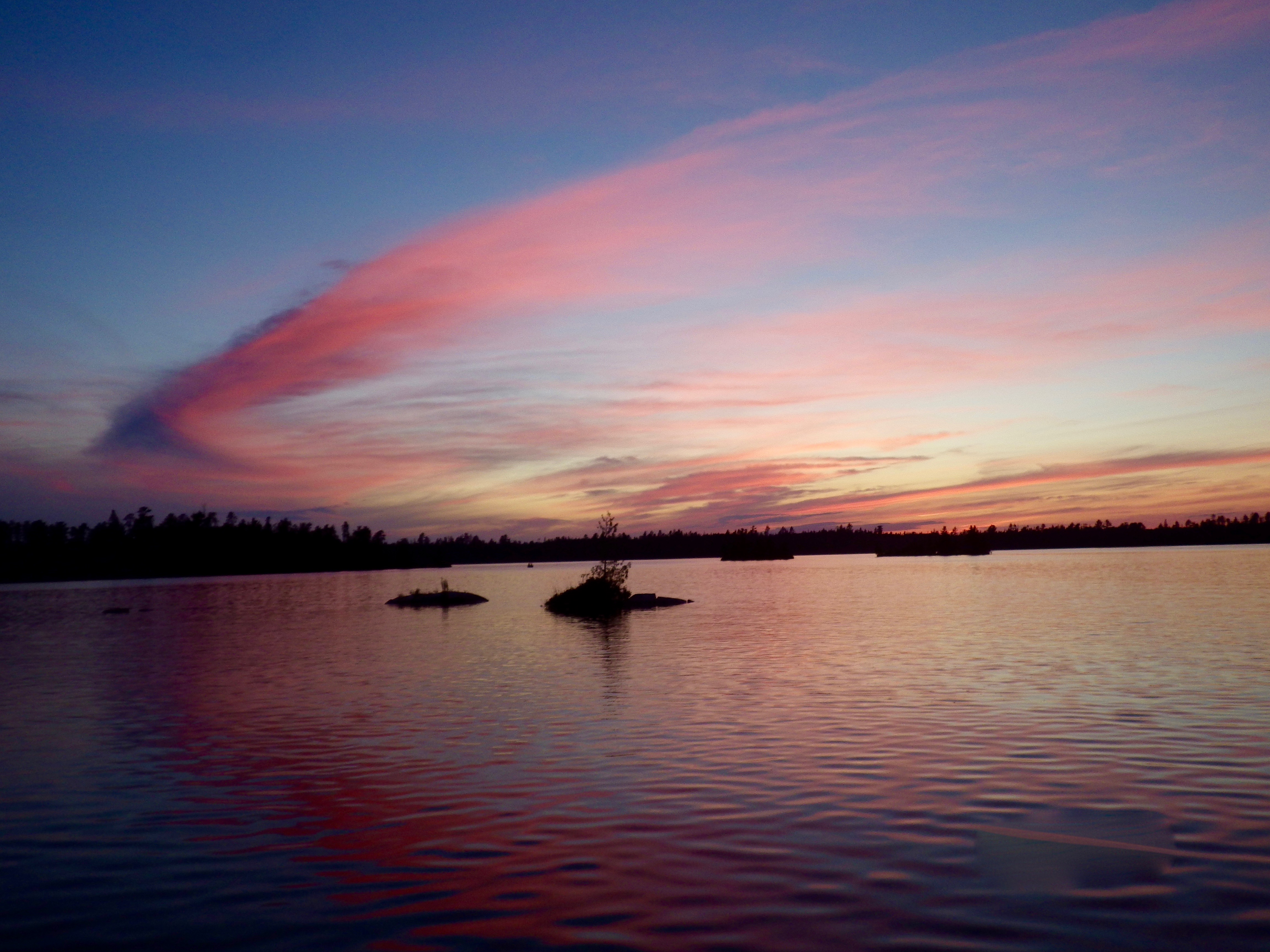 I find it amazing that I woke up at 5:00 a.m. with no alarm clock--it just happened. The Wilderness started to come alive; bright bulbs in the sky faded away as the sun started its trek around Snowbank Lake for the 209th time this year. My accomplice on this trip, fellow Campaign to Save the Boundary Waters Intern Levi, was still sleeping as the second day of our five-day trip began. As I sat on the shoreline eating a Clif Bar, I watched the lake start to burn; red-orange ripples calmly came and went across its surface. The flames were topped by a uniform blanket of fog rising from the water. The sun’s rays struggled their way through the tree line to the east. Quickly realizing I would rather be paddling than sitting on land, I gathered my tackle and gear. With a swift push of the canoe, I was off into the burning water.
I find it amazing that I woke up at 5:00 a.m. with no alarm clock--it just happened. The Wilderness started to come alive; bright bulbs in the sky faded away as the sun started its trek around Snowbank Lake for the 209th time this year. My accomplice on this trip, fellow Campaign to Save the Boundary Waters Intern Levi, was still sleeping as the second day of our five-day trip began. As I sat on the shoreline eating a Clif Bar, I watched the lake start to burn; red-orange ripples calmly came and went across its surface. The flames were topped by a uniform blanket of fog rising from the water. The sun’s rays struggled their way through the tree line to the east. Quickly realizing I would rather be paddling than sitting on land, I gathered my tackle and gear. With a swift push of the canoe, I was off into the burning water.
With my jig bouncing along the the rocky bottom, the choir of loons on the lake crescendoed as I floated without a care in the world. Two members of the choir decided to give me a wake-up call by surfacing right in front of the canoe. They were at ease: stretching their wings, shaking their heads and taking turns dunking themselves in the flames. Without fear of me, the loons slowly moved on making only the slightest ripples in the burning water. Just as quickly as they arrived, they left.
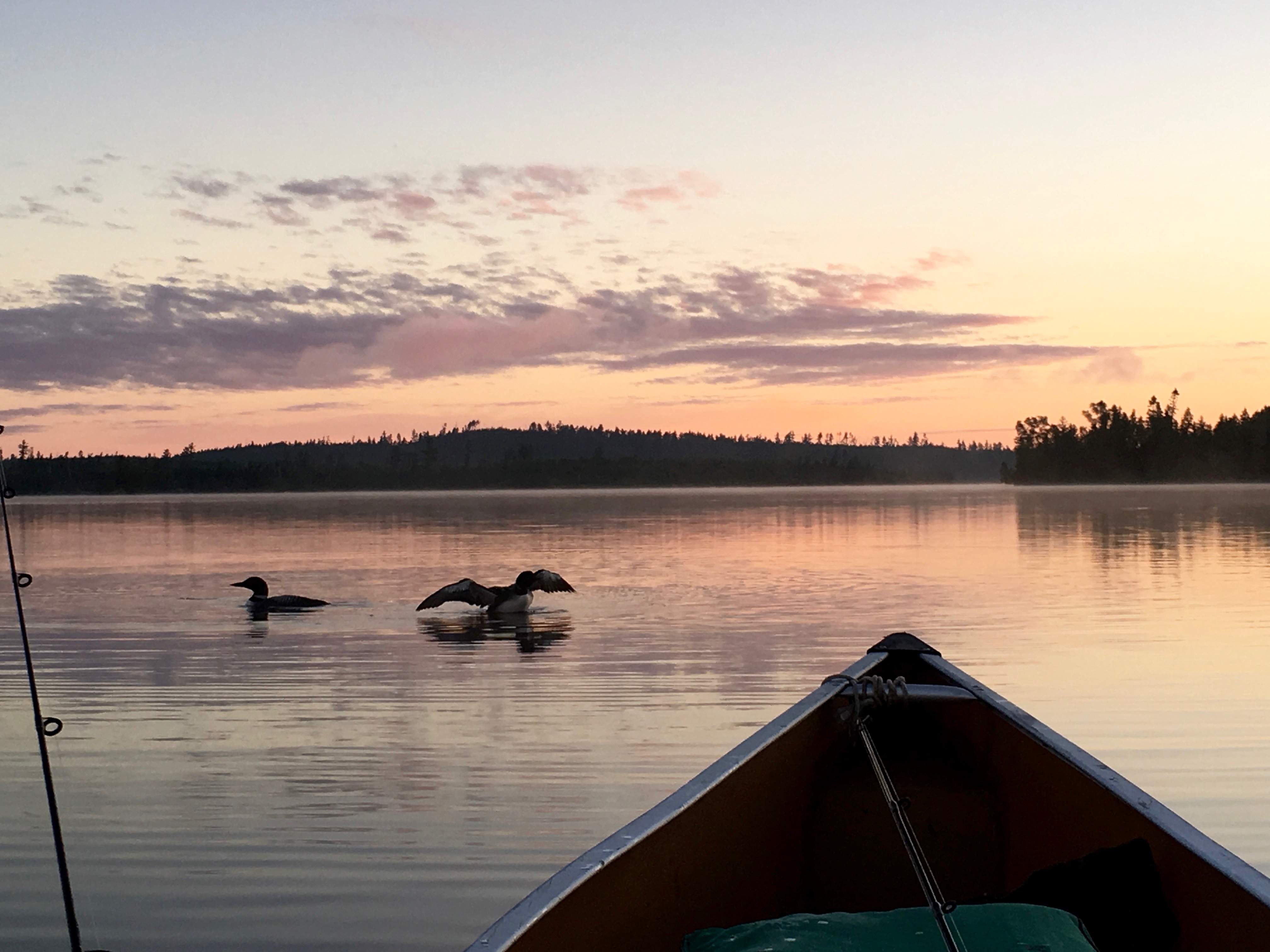
In the time that the loons had come and gone, I realized how relaxing it was to not be in the concrete jungle we call civilization. Without the sounds of the city constantly ringing in my ears, the serenity of the Wilderness allowed me to sit back and ponder what an amazing experience I have had while in the Boundary Waters. In that moment, it hit me that I was there. I was enveloped in what I was working so hard to save with the Campaign to Save the Boundary Waters. The sounds, the sights, the smells; they were all so real.
Mother Nature had let loose a couple of weeks prior to our arrival on Snowbank Lake. Wind gusts of 100 plus miles per hour had transformed the dense forest into channels of trees either snapped in half or uprooted completely. The shoreline was littered with fallen Jack Pines that still held their green needles—and my curiosity as to how many Smallmouth Bass were under each of them. The biggest issue I faced the rest of the day, and the trip for that matter, was deciding what lure to fish with.
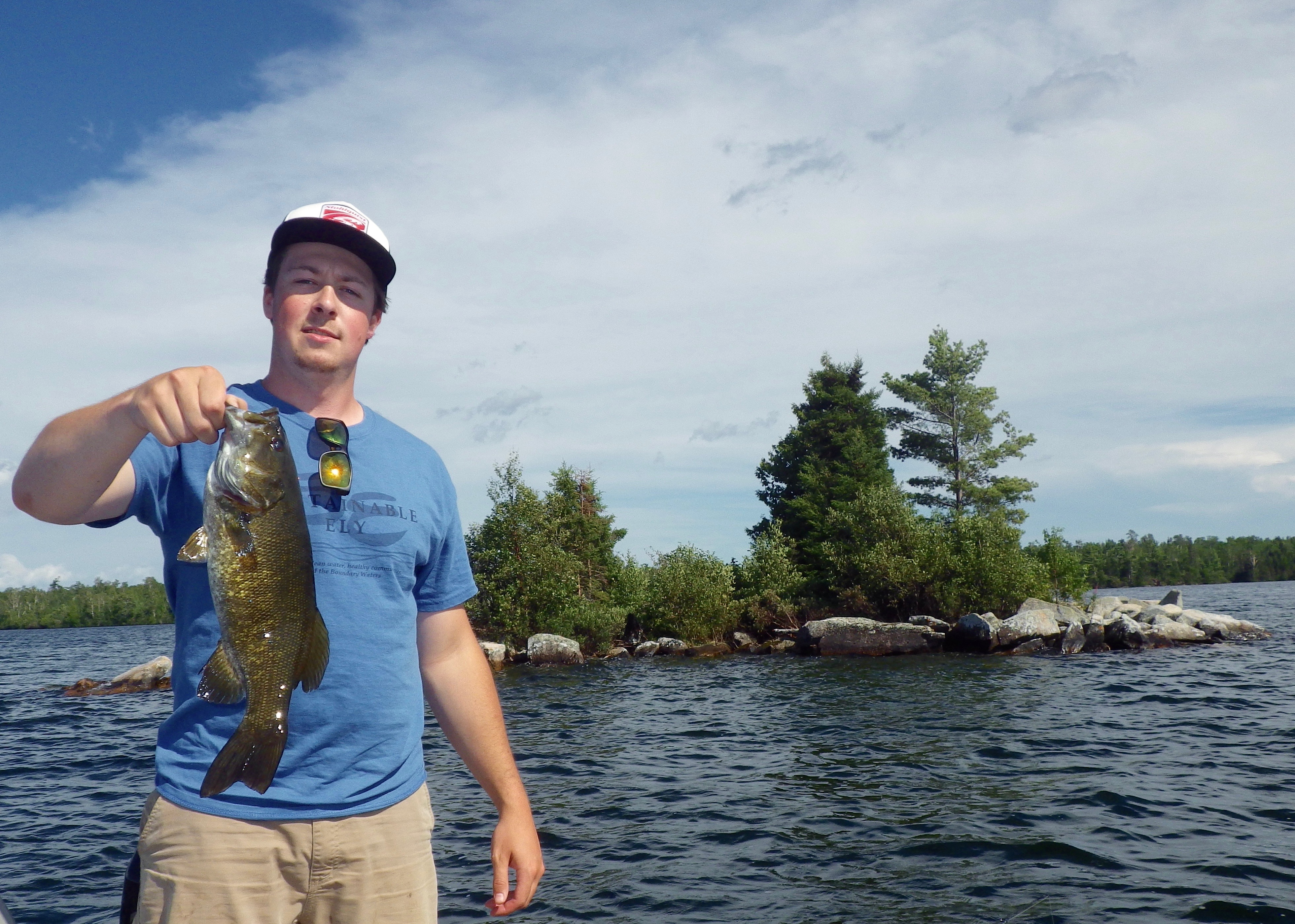
“Should I use a Dare Devil, jointed Rapala or a Mepps spinner?” I asked Levi.
“Use whatever you … want!” Levi said with a jerking sound in his voice. “Yee-yee!”
I spun around to check out what was going on, and there he was with an exhilarating bend in his pole.
The line shot under the boat, and line screamed from his drag. Making sure that the line wasn’t going to break, Levi slowly muscled the fish to the surface.
As quick as we saw the flash of its belly, the smallmouth took its second run to the bottom. A tug of the line bought a look of serendipity and excitement to Levi’s face. The sun was high in the sky now, and the red-hot-coal-colored water of the morning had transitioned to flickers of bright yellow flames off the waves. Slowly bringing his prize back to the surface and into the net, we celebrated accordingly with picture taking and way too many handshakes.
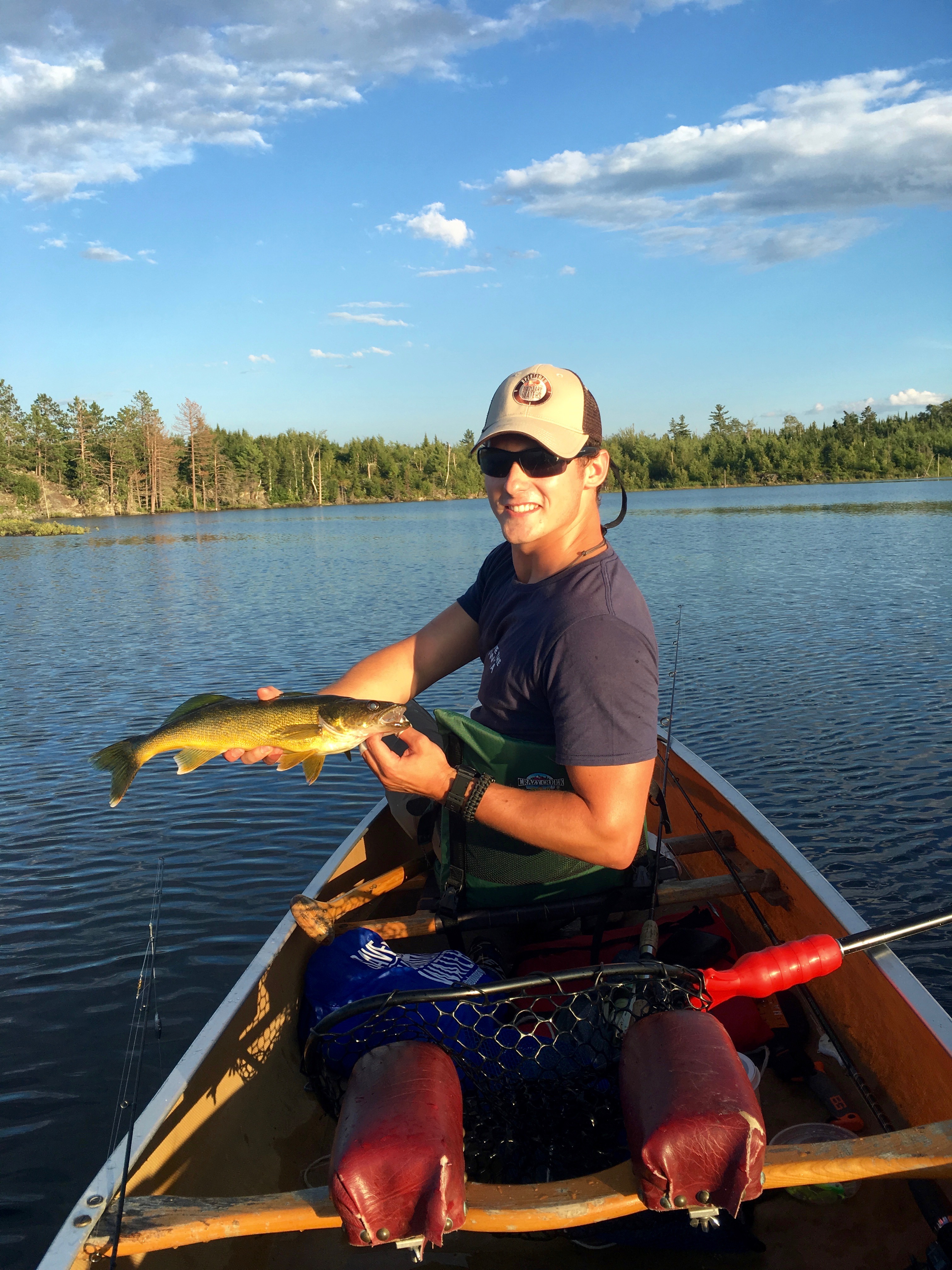
Our afternoon transitioned into evening, and it was decided that the night bite would be best spent on Flash Lake. The flickers of bright yellow flames followed us along the 140-rod portage which seemed effortless as we were both too eager to get our lines back in the water. Our goal was simple: catch walleyes to cook over the fire for dinner.
My chartreuse jig hadn’t been in the flames of Flash Lake for more than a minute, and my dinner was nibbling on what they thought was theirs.
In the couple minutes that I spent reeling in my dinner, Levi and I spattered out nonsense terms that took the place of the name “walleye.” That jibberish sounded something like this:
“Wall-frys tonight for dinner baby!”
“Señor Wallman!”
“Mr. Wall Senior!”
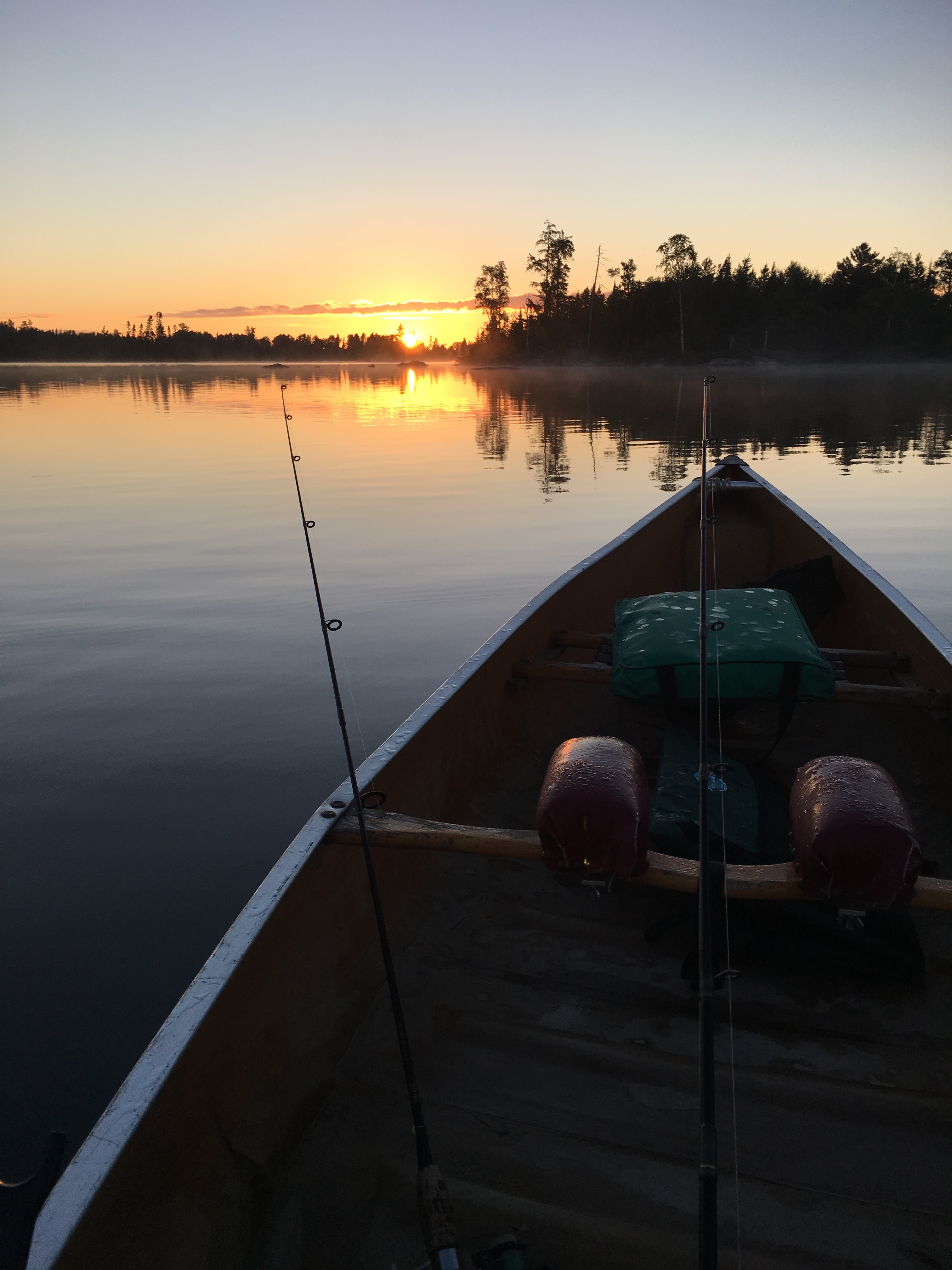
“Cricky, it’s a Wallapalooza!”
The fish we caught weren’t what made this evening bite so memorable for me, it was absorbing the moment. Baby loons trying to hoot just like mom and dad, a hen wood duck buzzing over our heads on her way back to the nest full of hatchlings and the occasional conversation about anything under the moon.
Our afternoon quickly turned into evening, and the flames changed color. Slivers of deep blue, purple and pink sliced the surface of the burning water. The woods were silent, and so were we. Halfway across Snowbank Lake, our paddles went still. I now knew why some 250,000 people visit and come back to the Boundary Waters; I felt like I was in a picture that you would see on someone’s laptop background.
The bright bulbs in the sky returned, and the burning water dwindled away.
Ross Stickler is an outreach intern with the Campaign to Save the Boundary Waters. Born in Stillwater, Minnesota, Ross is studying environmental science and community & regional planning at Iowa State University, where he aspires to become an environmental planner. Ross' passion for fishing and anything outdoors has driven him to protect Minnesota's crown jewel: the Boundary Waters.
